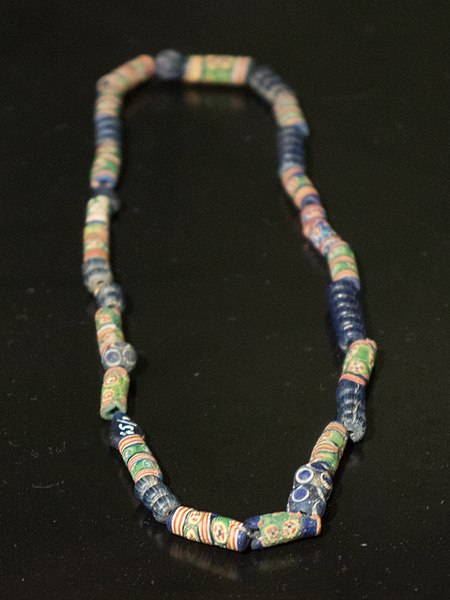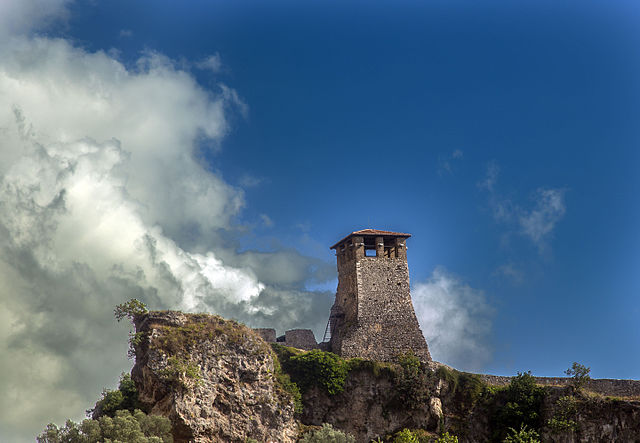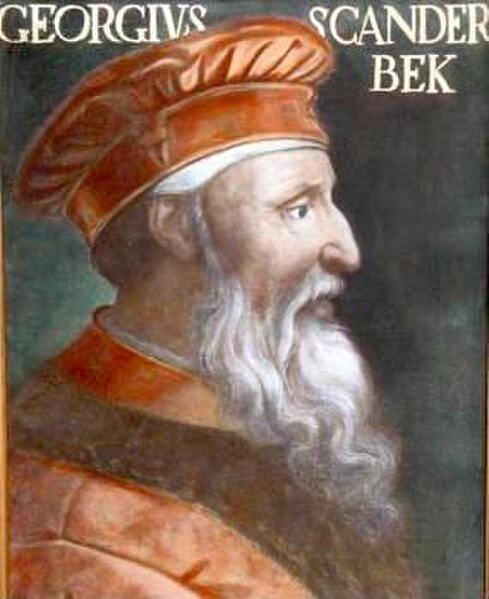The Albanians are an ethnic group native to the Balkan Peninsula who share a common Albanian ancestry, culture, history and language. They primarily live in Albania, Kosovo, North Macedonia, Montenegro, Serbia as well as in Croatia, Greece, Italy and Turkey. They also constitute a large diaspora with several communities established across Europe, the Americas and Oceania.
Glass necklace, 7th – 8th century, Shurdhah
The city of Krujë served as the royal seat of the Principality of Arbanon and later as the noble residence of the Kastrioti family.
Gjergj Kastrioti Skanderbeg led a successful rebellion to resist Ottoman expansion into Europe for 25 years.
Ali Pasha Tepelena was one of the most powerful autonomous Ottoman Albanian rulers and governed over the Pashalik of Yanina.
Albanian is an Indo-European language and the only surviving representative of the Albanoid branch, which belongs to the Paleo-Balkan group. Standard Albanian is the official language of Albania and Kosovo, and a co-official language in North Macedonia and Montenegro, as well as a recognized minority language of Italy, Croatia, Romania and Serbia. It is also spoken in Greece and by the Albanian diaspora, which is generally concentrated in the Americas, Europe and Oceania. Albanian is estimated to have as many as 7.5 million native speakers.
Albanian within Indo-European language family tree based on "Ancestry-constrained phylogenetic analysis of Indo-European languages" by Chang et al. (January 2015).
1905 issue of the magazine Albania, the most important Albanian periodical of the early 20th century
Meshari of Gjon Buzuku 1554–1555
Possibly the oldest surviving Albanian text, highlighted in red, from the Bellifortis manuscript, written by Konrad Kyeser around 1402–1405.








